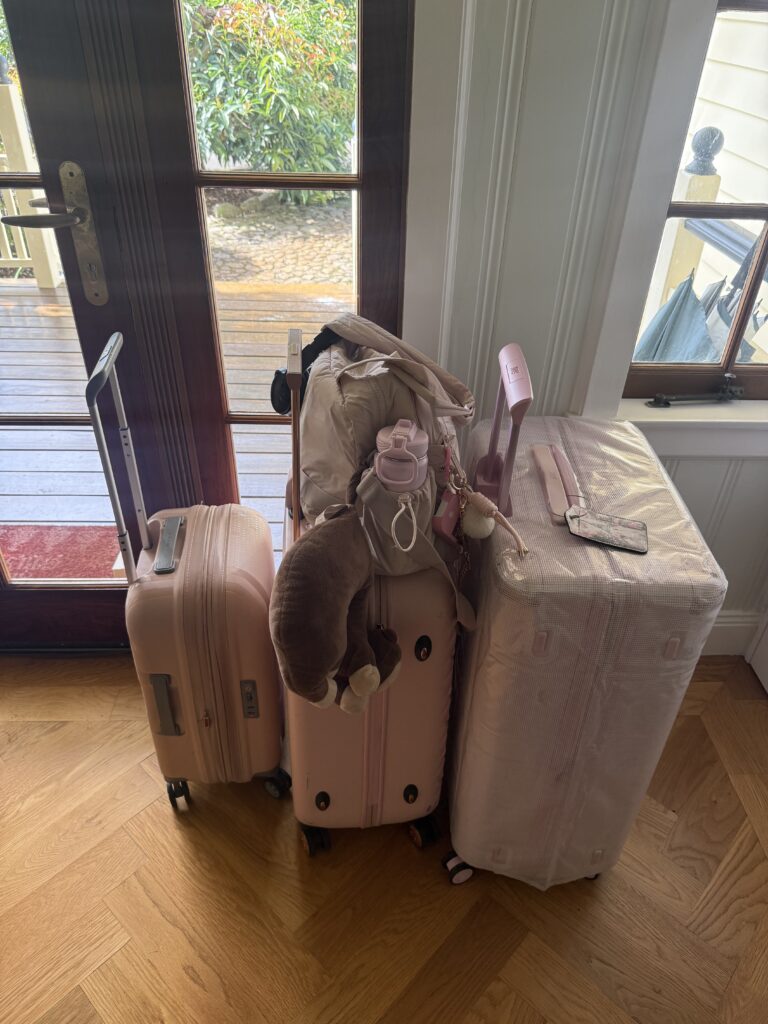Plane tickets, concert passes, and dining out with friends – these are the expenses you’re likely to find at a quick glance into the bank accounts of young adults today. It’s a phenomenon that has been on the rise in recent years, as Gen Z-ers and younger millennials shun the savings account in favour of once-in-a-lifetime experiences. More than half of young Aussies don’t adhere to a regular savings plan according to CommBank, preferring instead to splash their hard-earned cash on making memories.
Dubbed the ‘experience economy’, these transactions promise consumers a memorable and transformative experience. While the concept itself is not new, our spending on experiences has changed drastically from the penny-pinching ways of the older generations. Six in ten young Australians say experiences are now a top spending priority, and nearly half say travel is a major consideration in this.
It’s a trend that often leaves our pragmatic parents cringing at the state of our bank balances, but is it really a sign of uncurbed spending habits, or have our priorities simply shifted in an unprecedented era?
Let’s take a look at the reasons why Gen Z and millennials are now prioritising experiences over saving money, and what this means for the financial futures of today’s young adults.
The Unattainability of the Aussie Dream
The Australian Dream used to be simple – work hard at a full-time job and soon you’ll be the proud owner of a humble home in the suburbs, with room for a growing family and a dog or two. But let’s face it, hard work just doesn’t seem to cut it anymore.
Amid economic instability and a housing crisis, many young adults are feeling as though the Australian dream will always remain just that – a dream. In fact, two-thirds of Aussies are concerned our younger generations will never be in a financial position to buy a home at all.
These fears aren’t unfounded, with data from the Australian Bureau of Statistics indicating that growth in housing values outpaced wages by more than 10 times in 2021 alone. This paints a bleak future for housing affordability and offers insight into why so many young adults have given up on the dream altogether, opting instead to spend their money on enjoying the present.
A Need for Instant Gratification
It’s no secret that the younger generations can be impatient. With digitalisation placing everything our hearts could ever desire at our fingertips, we often can’t resist the allure of an impulse buy. Our need for instant gratification has become so entrenched that millennials have even been cheekily christened the ‘now generation’. While this may conjure up images of a petulant Veruca Salt screaming “I want it now!”, this trait isn’t necessarily as negative as it sounds.
With big-ticket items feeling out of reach for young adults, it’s understandable that we’d turn our attention to short-term, instantaneous rewards instead. Splashing out on an impromptu weekend away or saving for a bucket-list-worthy overseas holiday is more financially viable, particularly in the short term.
Unlike spending that same cash on physical items, splurging on experiences is often justified as being an unmissable part of youth. This attitude towards money is particularly prevalent on social media, with many young people advocating that ‘life is too short’ to spend your twenties saving money instead of making the most of life.
An Uncertain Future
It’s no understatement that we’ve all been through a lot in the past few years. From losing a large chunk of our youth-defining years to a global pandemic to grappling with an increasingly tense socio-political environment, it’s safe to say our futures are feeling more uncertain than ever.
With everything on our plates, it’s hard not to adopt a collective nihilism about what our futures will look like – and frankly, if there’ll be one at all, thanks to climate change predictions. According to Pew Research, a whopping seven in ten Gen Z-ers say they feel anxious about the future of our planet. While this outlook appears pessimistic, using our hard-earned cash to fill the present with exciting experiences is just our way of keeping the party going while the lights are still on.
Cherishing Memories Over Items
It’s not all doom and gloom when it comes to why Gen Z and millennials are prioritising experiences over savings. Quite simply, younger generations want to do what makes them happy, and this most often comes in the form of lived experiences.
While our grandparents collect things like fine china and artwork, we’re more interested in collecting memories in our camera rolls. The younger generations have been influential in redefining success, believing that a rich life should be measured in experiences rather than possessions. As a result, young adults are shedding their stuff and getting out into the world more often, finding longer-lasting happiness in their adventures.
The Downsides of Financial YOLO
If this generation had an official mantra when it comes to finances, it’d be ‘You only live once’. While we should celebrate that young people aren’t afraid to prioritise their happiness in the current climate, we have to acknowledge the importance of financial responsibility.
Social media has seen a resurgence in travel content, including the hugely popular ‘Euro Summer’ trend, as international travel ramps up again in the wake of the pandemic. But amid the pictures of plane windows and Aperol Spritzes on the beach, there have been several stories emerging of young travellers finding themselves in sticky situations with no cash to spare. These range from cautionary tales to full-blown horror stories, with one Aussie TikTok user even forced to declare bankruptcy after racking up tens of thousands in debt for an overseas holiday.
If there’s a lesson we can learn from others’ mistakes, it’s that travel can be risky and you should always plan your finances accordingly. Blowing your budget on glossy resorts and steak dinners will not be worth the stress of trying to scrounge up money in an emergency situation.
Finding the Right Balance
Living a fulfilling life that prioritises experiences doesn’t have to come at the expense of your financial future. The 50/30/20 budgeting rule is perfect for keeping the good times going, while still taking care of your future self.
This budgeting technique separates your take-home income into three categories. 50% of your after-tax income should go towards necessities, such as housing, transportation, groceries, and medication. 20% of your income should be invested in your future, whether this be in a savings account or investment portfolio. The remaining 30% is for treating yourself to whatever makes you happy – with no regrets or restrictions.





